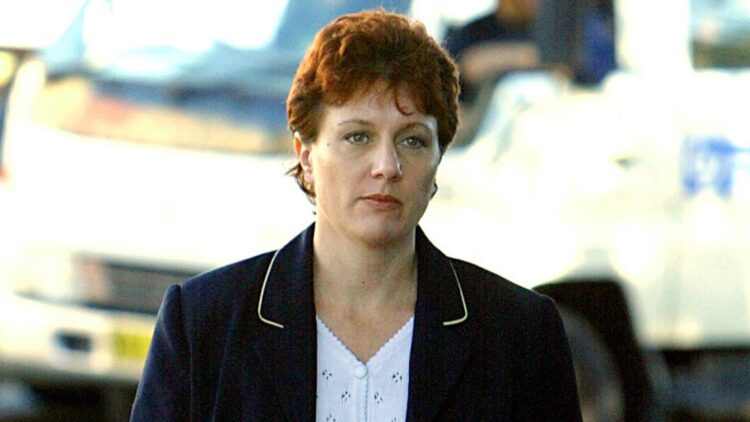By Martin Cole-
Kathleen Folbigg, once labeled Australia’s “most hated woman,” saw her convictions overturned on Thursday, marking the culmination of a lengthy legal battle that has gripped the nation for two decades.
Folbigg, (pictured)convicted in 2003 of murdering three of her children and manslaughter of another, had been vilified as a baby killer.
However, a recent inquiry, which delved into new scientific evidence, has introduced reasonable doubt about her guilt. The appeals court’s decision to quash her convictions is a significant milestone in a case that has stirred intense emotions and divided public opinion.
Having spent 20 years behind bars, Folbigg was pardoned and released from prison in June, and Thursday’s decision adds another layer to her tumultuous journey through the legal system.
The case against Folbigg was notably devoid of solid medical evidence explaining the deaths of her four young children—Caleb, Patrick, Sarah, and Laura—between 1989 and 1999, aged between 19 days and 18 months.
It relied on Meadow’s Law – a controversial and now discredited precept that three or more sudden infant deaths in one family were murders until proven otherwise.
Instead, the prosecution heavily relied on Folbigg’s diary entries, treating them as admissions of guilt. Notably, the original guilty verdict did not involve expert testimony from trauma, journaling, or grief experts.
A controversial legal principle, Meadow’s Law, also played a pivotal role in the case. The now-discredited notion posited that three or more sudden infant deaths in one family were considered murders until proven otherwise.
The 56-year-old was granted an unconditional pardon and released from jail in June after an inquiry heard there was reasonable doubt about her guilt following new scientific discoveries.
Folbigg’s acquittal has raised questions about the reliance on diary entries and the controversial legal doctrine, casting a critical eye on the methods employed in her conviction. Notably, no medical experts testified on behalf of the prosecution during the trial.
In a diary entry from 1998, discussing the death of her youngest child, Laura, Folbigg wrote about a moment of anger and frustration. She accused the prosecution of taking her words out of context, emphasizing that the private nature of her journals did not warrant public scrutiny.
“They cherrypicked words and phrases from my journals. Those books contained my private feelings, which I wrote to myself,” Folbigg asserted during a press statement. “No one expects those types of things to be read by strangers, let alone opinionated on.
They took my words out of context and turned them against me. They accused me of something I never wrote about, never did and never could do.”




